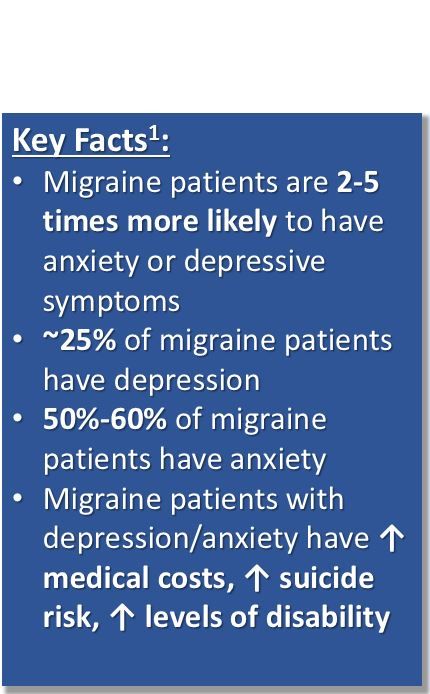- Clinical Technology
- Adult Immunization
- Hepatology
- Pediatric Immunization
- Screening
- Psychiatry
- Allergy
- Women's Health
- Cardiology
- Pediatrics
- Dermatology
- Endocrinology
- Pain Management
- Gastroenterology
- Infectious Disease
- Obesity Medicine
- Rheumatology
- Nephrology
- Neurology
- Pulmonology
Managing the Emotional Side of Migraines
How can you help migraine patients who suffer from psychiatric conditions such as depression or anxiety? A headache expert says a simple question can make a huge impact.

Migraines can be unpredictable and debilitating when they strike. They can have a major impact on all important areas of a patient’s life, according to Dawn Buse, PhD, a licensed psychologist and fellow with the American Headache Society, as well as a clinical professor at Albert Einstein College of Medicine of Yeshiva University.
Therefore, she says, it’s no surprise that people who suffer from migraines can experience feelings of sadness, frustration, guilt, embarrassment, anger and loss, to name a few, in response to their disorder.
Buse says physicians need to be sensitive to these emotional aspects of migraine disorder, which is a chronic disease that is often comorbid with other psychiatric conditions including depression, anxiety disorders, bipolar disorder, post-traumatic stress disorder, and personality disorders (see Figure above; please click on image to enlarge).
“Persons with migraine and at least one psychiatric comorbidity have worse health related quality of life than those having either disease alone,” Buse explains.
The risk of these psychiatric comorbidities increases the more frequently a person gets migraines, she says. “[They are] highest among people with chronic migraine compared with people with episodic migraine-often doubling,” Buse says.
And when it comes to migraine and depression, Buse says they are “bidirectional,” meaning each condition increases the risk of the other, for reasons that aren’t clear yet, but may include, “latent brain state models, shared environment, and shared genetic predisposition,” she says.
Next: Ask This Simple Question
Because of the potential for significant emotional distress in patients, Buse recommends that physicians ask migraine patients a simple open-ended question: “How is migraine affecting your life?”
“[This question] can yield a wealth of information about migraine-related disability and impact,” Buse says. “This non-directive question will allow the patient to share whatever impacts are most significant and important to him or her.”
Additionally, she says, the question helps to establish trust and rapport, as well as to gather valuable information about migraine-related disability, which is crucial to developing a treatment plan.
What’s most important for a physician to do after asking the question, Buse says, is, “to normalize the high rates of psychiatric comorbidity and validate the significant negative impact that migraine can have on all important aspects of life.”
It sometimes happens that patients believe the migraines are their fault. “By openly discussing these topics, the healthcare professional destigmatizes these topics and lets the patient know that his or her experience is common, treatable, and not his or her fault,” Buse says.
This approach can significantly reduce the stigma and embarrassment some migraine patients experience, particularly when they also suffer a psychiatric comorbidity or migraine-related disability.
She also recommends that all patients with migraine should be regularly screened for depression and anxiety. When appropriate, she says they should be treated or referred for pharmacologic and or behavioral health treatment, as well.
Since embarrassment and other barriers to access might keep them from seeking mental healthcare, Buse says it’s important for physicians to demystify the treatments and offer encouragement to the patient when making the referral.
References:
Smitherman TA, Baskin SM. Depression and Anxiety in Migraine Patients. American Migraine Foundation. https://americanmigrainefoundation.org/resource-library/depression-and-anxiety-in-migraine-patients/. Accessed May 13, 2019.
